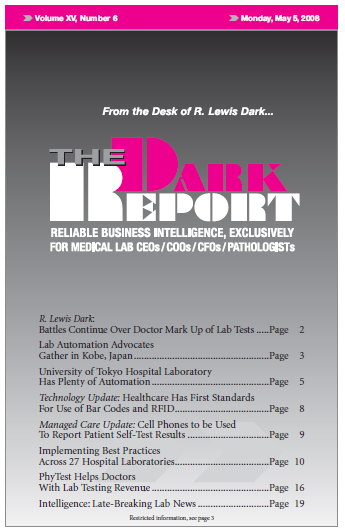CEO SUMMARY: PhyTest, Inc., created a unique business model upon its founding in 1998. It primarily specializes in handling laboratory test billing and collection services to office-based physicians. It also provides evaluation, consulting, and implementation services to help physicians in client-bill states establish discounted billing relationships with reference laboratories. To avoid Stark Law issues on …
PhyTest Assists Doctors With Lab Testing Revenue Read More »
To access this post, you must purchase The Dark Report.


